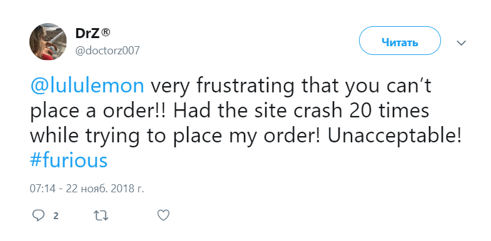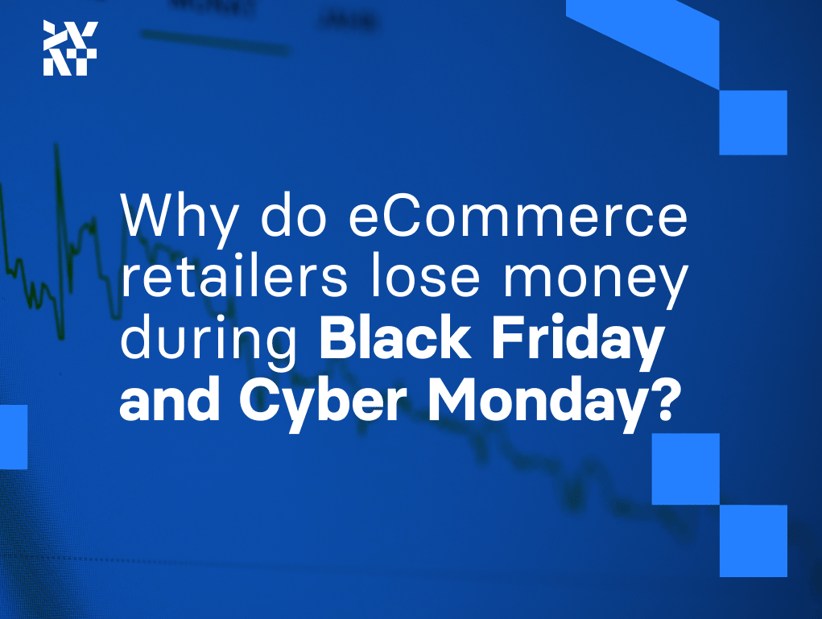History has shown us that out-of-control shopping can be dangerous. Using gas to get an Xbox, an employee getting roughed up by a crowd, and a TV crushing a woman are just a few examples of how risky Black Friday shopping madness is.
“I approximated the Black Friday experience at home by hurling myself into a wall a number of times and then ordering online.”
Kumail Nanjiani, Comedian and Screenwriter
According to the Hustle, between 2006 and 2018, there were more than 40 Black Friday related deaths and injuries in America. With these stats in mind, Cyber Monday seems to be a more convincing option if you want to shop safely. Luckily, Black Friday is becoming more “Cyber” than ever.
The difference between Black Friday and Cyber Monday is blurring
Black Friday used to only apply to brick-and-mortar stores. The COVID-19 outbreak forced us to stay at home, and the rules of the game changed significantly. The line between Black Friday and Cyber Monday is blurring in many stores, and sales last a weekend or the whole week.
Due to the pandemic that we are still struggling with, stores will, again, certainly impose restrictions on the number of people who can stay inside the store. That can lead to even longer lines in the front of stores. However, if we have a phone in our hands, thanks to which we can make a purchase, why wait?
Prepare for the worst to avoid getting crushed
What do companies such as J.Crew, Lululemon, Walmart, and Ulta Beauty have in common? Each of them experienced a severe website crash and lost loads of money, not to mention their reputation, during Black Friday or Cyber Monday. That’s bad news. One frustrated client can spread that “news” through social media in seconds.

Source: Twitter
So you don’t repeat the mistakes of these retail giants, prepare your site at every level. Even the biggest retailers can suffer from these massive peaks in traffic if their website is not ready from a technical perspective. Overburdened API, being unprepared for high traffic volume, slow third-party functions, or improperly selected architecture are the most common issues that lead to Black Friday and Cyber Monday website crashes.
Here are all of the most important tasks you need to do to prepare your site for the rapid peaks in traffic:
1. Check the health of your website and look for the pain points
First of all, you have to be sure that your site has no dead ends or broken links. A poor experience and weak navigation leads to frustration. That leads to a frustrated customer who probably won’t make a purchase.
A clear, user-friendly design is always hot. The website should be easy to navigate. Call-to-action buttons need to be clear, concise, and easy to follow. Eye-catching content and pretty graphics are important but can’t be the main focus. It’s the optimization of the checkout page that’s crucial for any business. It’s like the essence of your store. Take care of it properly, and don’t forget about having a perfect mobile checkout experience.
Here are a few tips for that.
Keep it simple. Don’t force users to register. Let customers use buttons to move forward and a progress indicator during checkout to let your customers know how many steps there still are before the purchase is completed. Automatically complete fields the customer has to fill out. Try to get your customer to the end of the checkout with the minimum number of clicks.
Multiple promotional offers and dynamic pricing may create problems at the checkout, so watch out for missing prices and pricing errors. Developers may have to be creative to decide which discount to apply or not and which can be used at the same time as another. Also, be aware of back-end database changes. Making changes to back-end SKU databases and product database technologies can cause glitches.
Another crucial point is testing the API in the development cycle. Nobody remembers to do it regularly, so add it to your calendar to make it routine. API is the heart of modern software companies, and it’s critical to website performance. You can significantly cut down on response times and ensure consistent uptime by making a few simple optimizations.
Optimize the site for search engines. This will improve the quality and quantity of website traffic to a website or web page from search engines.
2. Run a performance test to find out how long your site takes to load
Page speed matters. A lot. Many tools, like Google Page Speed Insights, GTMetrix Page Speed Tester, or Pingdom Website Speed Test, are available on the market that can help you test your site’s performance. They can also give you suggestions on how to improve your speed.
A significant difference in page load times will affect page weight. Remove unnecessary images and compress those you want to keep. eCommerce crashes can also result from sites heavy with graphics, so it’s worth checking if you can optimize your pictures.
To enormously speed up your site, think about implementing a progressive web app (PWA) solution. This will allow you to provide users with an experience previously reserved only for native applications. PWAs are lightning fast regardless of connection speed, can run in the background, and are installed on devices just like native apps.
Also, don’t forget about testing the scalability of your server. The key to avoiding downtime is balancing your loads effectively and making your back end as scalable as possible.
3. Prevent hack attacks
Events like Black Friday are particularly vulnerable to hack attacks. Having good website security during this period is crucial.
We all have the habit of downplaying notifications about a new update being available. Take all software and plugin update requests seriously. When your site has hundreds, thousands, or millions of orders, you can't afford not to. Updates are vital to the health and security of your website. If your site’s software or applications are not up to date, your site isn’t secure. To keep it safe, you also need HTTPS and an SSL certificate to encrypt data sent from a customer to your website and web server.
The more you know about the current state of your website security, the better. It gives you time to fix it before anything bad happens. You can use a website scanner for known malware, blacklisting status, or any website errors.
4. Think mobile-first
Immediately after entering the phrase "mobile-friendly" in Google, a box appears so you can enter a website’s address to check if it will work well on mobile. When you prioritize a mobile-friendly site, you can ensure a consistent customer experience across all devices.
How can you become mobile-friendly?
Identify the potential milestones of your customer's visit, and make sure they can be easily accomplished on a mobile device. Try to simplify everything and reduce the number of user engagement activities. In this example:
- The customer wants to buy new socks and clicks on the website they found.
- They browse through the socks offered.
- They buy the selected pair (or ten because you can never have enough socks).
If your site isn’t easy to browse on a mobile device, you’re simply begging to lose revenue. Generation Z was practically born with a phone in their hand. About 68% of Zoomers shop via their mobile phones up to four times a week.
5. Act beyond the competition and take care of additional benefits
Competing with just the price isn’t enough. Here are a few ideas worth considering to maximize profits for the cyber weekend:
Offer free shipping and same-day delivery
In the past, we considered same-day delivery as some kind of a luxury. Now, our expectations have changed, and free shipping and same-day delivery are taken for granted and often expected.
Create a gift guide
Sometimes, choosing the perfect gift is a struggle. Help your clients to make a choice quickly and painlessly by creating a gift guide.
Offer a free gift with every purchase
Offering gifts will contribute to a positive brand experience and help you increase your average order value. After all, everyone likes to get something for free.
Provide a special discount for loyal customers
Send loyal customer-only offers and sneak peeks. If you have a loyalty program or a VIP Club for your best customers, offer them an exclusive discount during the Black Friday and Cyber Monday weekend.
Include rewards for a minimum spend
Require customers to commit to a certain level of spending to qualify for the bonus. Having a reward for a minimum spend is one of the most common promotions that’s used by retailers all around the world.
Do the work, reap the rewards
Put a lot of effort into preparing your site before the Cyber Weekend, and you’re going to be rewarded. Keep in mind that each time your website is down, you run the risk of losing customers and real profits. If you can’t implement everything before Black Friday and Cyber Monday, start preparing your site for the Christmas season.
Of course, the "customer is king" policy should always matter. However, before and during the Cyber Weekend, store owners should put red carpets in front of their developers and engineers. During this crazy shopping season, the fate of your website rests in their hands.
Published November 3, 2021











